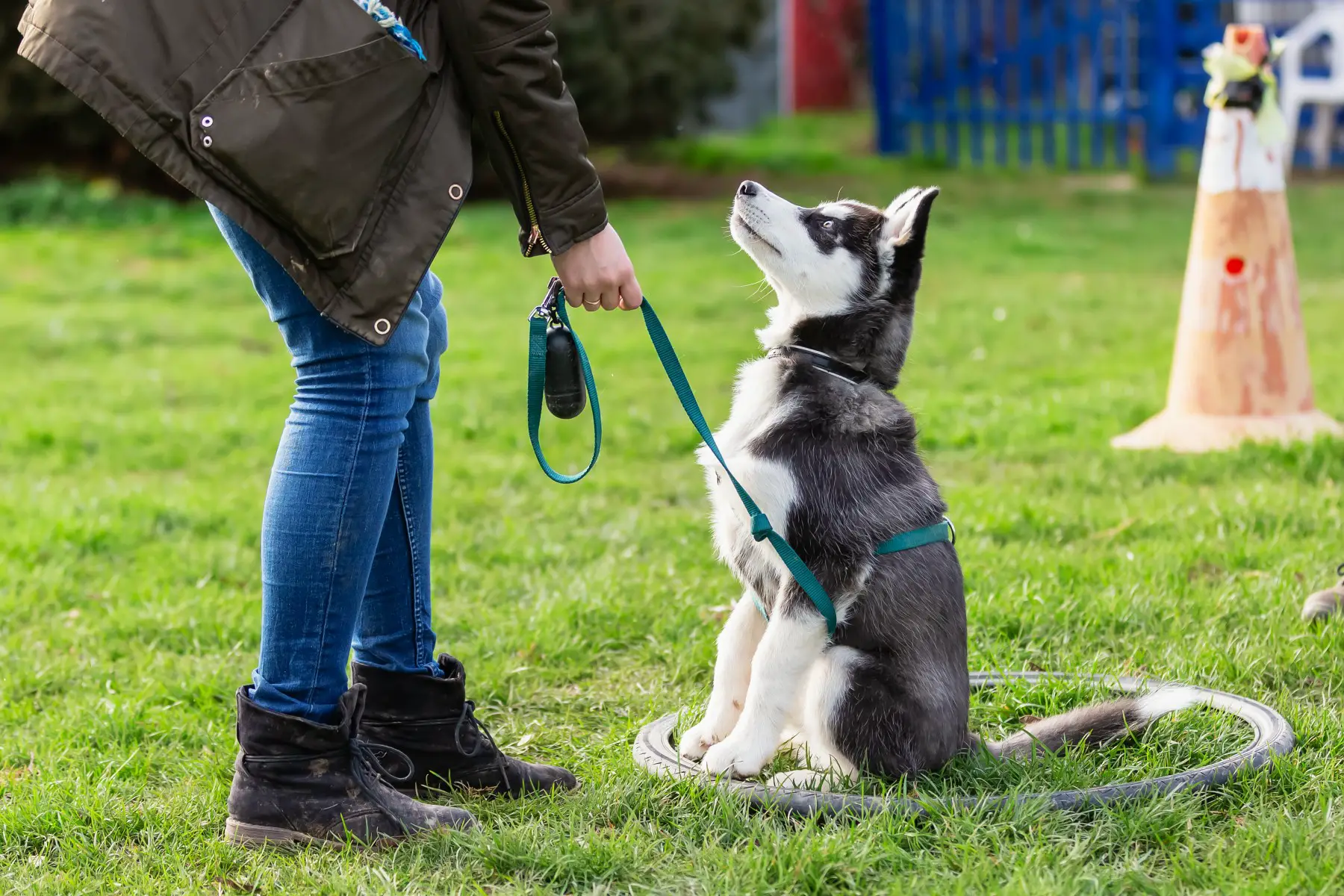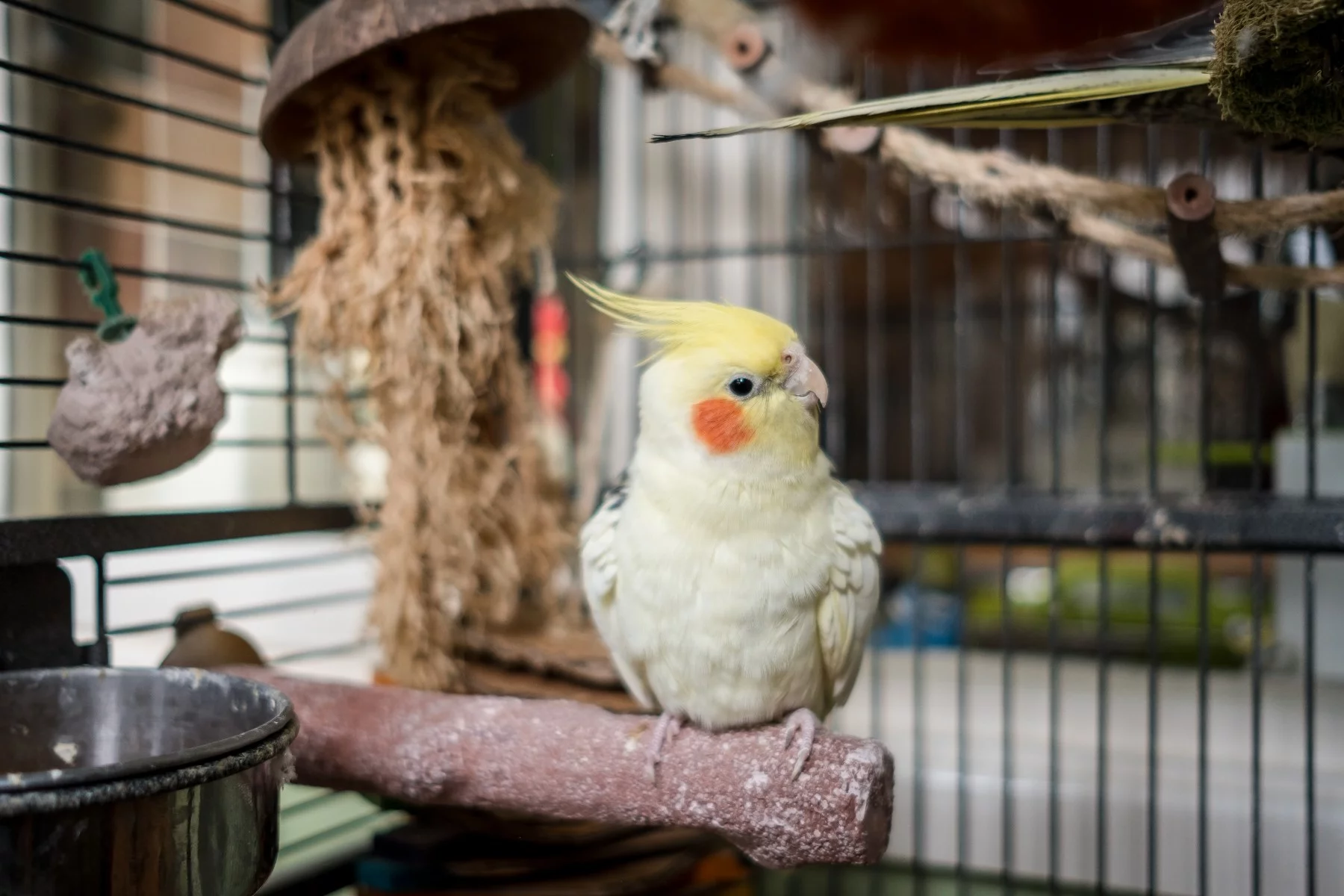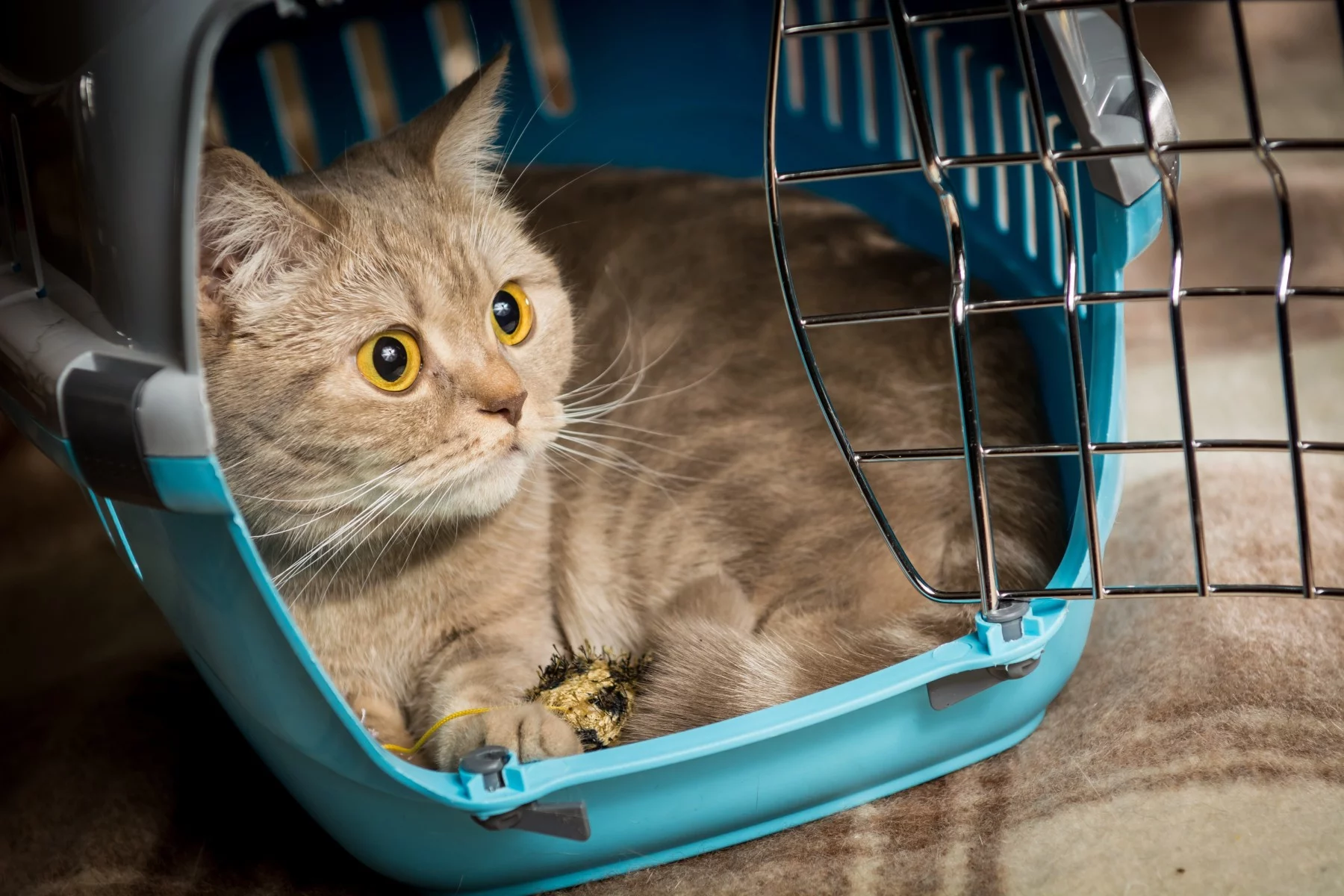Have you heard that you’re not allowed to have just one guinea pig in Switzerland or that the law requires you to give your cat a scratching post? Whether you are looking to add a furry family member to your household or bring your dog along with you when you move to Switzerland, you should be aware that there are many specific rules and regulations for pets in Switzerland.
Use this guide to sniff out everything you need to know about Swiss pet ownership, including:
Animal welfare laws in Switzerland
First, you should be aware that the Swiss constitution gives extensive protections for animal welfare. Consequently, Switzerland has a high ranking on the World Animal Protection Index (API). Both the Animal Welfare Act (2005) and the Animal Welfare Ordinance (2020) establish anti-cruelty protections and basic standards of treatment for all animals.

People who keep and care for animals have very specific requirements under Swiss law to ensure that animals have a good quality of life. In short, no person may improperly subject an animal to pain, suffering, harm or fear, or otherwise violate its dignity. The law also provides minimum standards for how people must house and care for domestic and captive animals. In addition to issuing fines or jail time, the Swiss authorities may ban people who seriously violate the regulations from keeping animals.
Even though the Swiss are commended for their attentiveness to animal welfare, the API has criticized Switzerland for not doing enough to protect stray cats. Animal rights advocates are also calling for Switzerland to explicitly ban fur farming and the use of animals for testing cosmetics.
Keeping pets in Switzerland
Around 43% of people living in Switzerland have pets, with cats taking the top spot in this alpine country. Recent numbers from Statista show that 28% of Swiss households have at least one cat, compared to 12% who are dog owners. The Swiss Animal Protection (SAP) organization estimates that Switzerland is home to 1.6 million pet cats, more than half a million dogs, roughly the same number of rodents and rabbits, 370,000 reptiles, and more than three million aquarium fish. Switzerland doesn’t currently have any instances of animals with rabies.
Cats
Being a cat-loving country, Switzerland, fortunately, doesn’t tax cat owners. However, you should be aware of some new regulations for keeping pet cats. If you only have one cat, it must have daily contact with people or have visual contact with other cats. Indoor cats need to have permanent access to at least one room per cat. You can only legally keep four cats per 7m2 floor space. The law requires that each cat has its own litter box. Furthermore, you must provide cats with a scratching post and enable them to climb, hide, and play.

It is illegal to declaw cats in Switzerland. The law doesn’t require cats to be neutered, microchipped, or registered. However, authorities strongly advise people with pet cats to do so. Nearly 12,000 cats are taken to Swiss animal shelters each year and only one in five are reunited with their original owners. You can register your cat in the ANIS database (in German).
If you’d like to add a cat to your household, you might consider checking your local animal shelter (in German) where you can find a cat that has been vaccinated, neutered, and treated against parasites. Most shelters also charge a fee and issue a contract that you will sign as the future owner. If you’re looking for a pedigree cat, SAP recommends visiting several breeders and comparing the living conditions. Kittens must stay with their mother and litter for a minimum of the first 12 weeks of their life. Be careful when cats are being sold for a cheap price or if they are given away almost for free.
Dogs
The rules for pets in Switzerland also make extensive and somewhat complex provisions for the welfare of dogs. Dogs must have contact with humans daily and also, if possible, with other dogs. They should get daily exercise and go outdoors. You shouldn’t leave a dog alone for more than four hours at a time.

Switzerland is the only European country requiring all dogs to be microchipped and registered in a central database (in German, French, and Italian) by the time they are three months old. If you import a dog from abroad, you’ll need to take the dog to a Swiss vet within 10 days of entering the country. Not only do you have to register your dog in your commune, but you’ll also have to pay an annual dog ownership tax. The tax varies depending on which Swiss canton you’re in, however, you can expect to pay between CHF 40 and CHF 150 each year. You’ll additionally need to carry civil liability insurance (Haftpflichtversicherung).
Switzerland no longer requires most dog owners to take a dog training course, but the authorities do recommend it for first-time owners. Beyond this, most cantons have their own dog regulations, especially when it comes to potentially dangerous breeds and large dogs. It is illegal to crop the ears or dock the tail of dogs in Switzerland. You also cannot use a device that punishes a dog for barking and making sounds, such as a shock collar.
Buying or adopting dogs in Switzerland
Switzerland has two labels for controlled dog breeders: the Golden Quality Seal and Certodog. Dog breeders in Switzerland must include their addresses in advertisements for the sale of dogs or puppies. If you’re planning to buy a dog from a breeder, you should visit several to compare the conditions and ensure the dog is raised by a responsible dog breeder. Be careful if someone (supposedly a dog dealer) offers cheap puppies with no opportunity to check on the breeding conditions, especially on the internet. You shouldn’t separate puppies from their mother and littermates until after 10–12 weeks.

If you adopt a dog from a Swiss animal shelter, you will probably need to pay a fee and sign a contract. You’ll also get advice on dog care, education, and housing.
Exotic pets
Residents of Switzerland are allowed to keep wild animals that aren’t listed under the Convention on International Trade in Endangered Species (CITES). However, you’ll still need a special permit from the Swiss Veterinary Office (SVO) to keep many of these animals as pets. You also might need a certificate of competence to prove you can care for the animal. Some cantons may require pet owners to attend special classes and accept home visits by the cantonal veterinarian.
If you’re going to purchase a wild or exotic animal to keep as a pet, you should only go through a local animal protection organization, rescue sanctuary, or a responsible Swiss breeder. Don’t buy animals from markets in foreign countries or online. In many cases, you will get animals of protected species that you can’t bring into Switzerland without permission from CITES and the SVO. Buying such animals also supports the illegal capture and trade of endangered species.
A person who is no longer able or willing to take care of an exotic pet cannot, for obvious reasons, set it free in the wild but must instead contact specialized centers. It is illegal to abandon an animal in Switzerland.
Domestic rabbits, rodents, and ferrets
If you live in a Swiss city, you likely have a smaller living space. As such, you might want to keep a domestic rabbit or rodent as a pet. Before you get this kind of animal, however, you should be aware that Switzerland has very strict rules for their living conditions.

The Swiss authorities define animals such as rabbits, guinea pigs, and parakeets as social animals. In short, these animals suffer when they are in confinement alone. According to Swiss law, these pets must have companionship with their own kind. Each of these animals also minimum cage sizes and standards. SAP outlines the many guidelines in their brochures for pet owners, but here are some general rules to know:
- Hamsters and gerbils must be in glass tanks of at least half a square meter.
- Rats should have at least one square meter of usable space.
- Rabbits need at least 6m2 or more outdoors. The enclosure must include several insulated, protected shelters or huts and structures for hiding.
- Guinea pigs need at least 1.5 to 2m2 if kept indoors. If kept outdoors, they need at least 4m2.
- Ferrets require a minimum cage size of 2m2 for two animals. You’ll also need a permit from the Federal Veterinary office.
- Climbing species such as rats and hamsters should be given climbing structures.
- Burrowing species such as hamsters or gerbils should be provided with digging opportunities.
SAP recommends adopting a rabbit or rodent from a local rescue center (in French). You can also look for quality certified VZFS pet shops (in German, French, and Italian).
Birds
Swiss law classifies several types of birds as social animals. As a result, it’s illegal to house birds alone. Birds also have strict minimum requirements for their living space. Here are some general rules to know:
- Parakeets/budgerigars and canaries: 2,400cm2 floor area and 50cm height.
- Cockatiels and rosellas: ½m2 and 60cm height.
- African grey parrots and amazons: 7,000cm2 and 1.2m height. Bigger parrots need spacious aviaries of over 100m2.
- Macaws and cockatoos: 10m2 and 3m height. Small parrots need at least a bird room with access to a garden aviary.
- Minimal space requirements for an aviary: 2m x 80cm x 1.8m for six canaries, six budgerigars, or two cockatiels.

You’ll need a permit from the Cantonal Veterinary Office for some parrot species, such as macaws and cockatoos. You can adopt a bird (for a fee) from a local animal shelter or purchase one from a certified pet shop or breeder. You should be able to inspect the breeder’s housing facilities before buying a bird.
Reptiles
Certain species, such as chameleons, poisonous snakes, or giant snakes (with the exception of boas and pythons) will require a permit from the SVO before you can keep them as pets. Reptiles make very complicated pets and in some cases, such as with tortoises, the animal could live much longer than the owner.
According to SAP, only people with gardens should keep tortoises and terrapins as pets since they require a habitat with fresh air and natural sunlight.
Registering your pets in Switzerland
Dogs are the only pets that require their microchip and the owner’s address to be registered in Switzerland. All canines must be microchipped by a vet by the time they are three months old. You’ll register the dog’s microchip in the AMICUS database. If you import a dog from abroad, you must take it to a Swiss veterinarian within 10 days of entering the country.
Whether you’re importing a dog from abroad or you bought it in Switzerland, you need to register your dog with your local commune (kreisbüro or gemeinde). You have 10 days to notify the cantonal authorities when you move to a new address with your dog or if your dog passes away. This is because your annual dog tax is linked to your address.
Even if you are keeping another kind of pet, it may be a good idea to have it microchipped and registered in a database in case the animal gets lost. The ANIS database (in German, French, and Italian) registers all pets excluding dogs.
Importing pets into Switzerland
Whether you are moving to Switzerland with your pets or getting an animal from outside the Swiss borders, you’ll need to follow strict regulations.

Microchips
Since 2007, all dogs in Switzerland must carry clearly identifiable and forge-proof chips (transponder). Owners must register them with the Animal Identity Service (ANIS). The ID chip contains a unique number as well as a code for Switzerland. This system makes it possible to retrieve data stored in the central databank on the dog owner, dog race, fur color, age, name, and sex. Puppies must have microchips and register within three months after birth. Dogs with chips implanted by veterinarians are also registered by the vet with the appropriate offices in the canton of residence. If you bring a dog into Switzerland, you must register it in the ANIS database with a veterinarian within 10 days of arrival.
Pet passports
Pets moving within Europe can use European Pet Passports, which are for domestic animals. The Pet Passport is a booklet that provides all of the essential information on your pet, including an identification number and proof of all relevant vaccinations. The passport remains valid for the whole life of your pet.
The EU pet passport serves as the certificate of health and can only be issued by a licensed vet. All vaccinations should be kept current by the vet who also needs to ensure that the pet is microchipped, has had the relevant rabies vaccine and has undergone a blood test to ensure that the vaccine is present in the pet’s system. If your animal was vaccinated before it was fitted with a microchip, it will have to be vaccinated again after the microchip is inserted. Additionally, if your pet’s microchip is not ISO 11784/11785 compliant, you will have to bring your own microchip scanner.
Rabies
Animals from EU countries must have a rabies vaccination at least 21 days before entering Switzerland. Dogs and cats younger than three months must have a veterinary certificate, stating that the young animals were kept since birth at their birthplace without contact with wild animals. The certificate is not necessary, when the young animals are accompanied by their mother, from which they are still dependent.
Pets entering Switzerland from a country with a high incidence of rabies must have a Blood Titer Test 3 months prior to departure.
Travelers from EU countries may bring an unlimited number of pets into Switzerland.
Cubs younger than 56 days can only enter Switzerland with their mother or foster mother.
Exemptions
Importing certain animals without a rabies vaccination certificate is possible in a few situations:
- Cats and dogs from rabies-free countries that forbid rabies vaccinations (Australia and New Zealand).
- Puppies and kittens up to five months of age from European countries (except Türkiye and the former Soviet Union) or from the United States, Canada, Australia, and New Zealand. A veterinary health certificate stating the animal’s age is necessary.
- Cats and dogs traveling through Switzerland by air or rail without a stopover.
Restrictions
- No animal health permits or health certificates are necessary for ‘pets’ according to the definition – except for dogs, cats, ferrets, and pet birds from non-EU third countries. These pets can come from any country.
- No dogs with docked ears and/or tails.
- The maximum number of pets from non-EU countries is five.
- For several exotic pets, husbandry permission is necessary. This does not apply for short stays but only if the pet will be living in Switzerland. Before issuing a permit, the cantonal veterinarian makes sure that the space and care for the animal are available. Permits are necessary for all mammals (except for livestock species), many birds, and some fish.
- The import requirements arising from the laws on conservation on species apply for protected or non-domesticated species even if those are deemed pets.
- Switzerland reserves the right in impose temporary bans aimed at preventing the introduction of animal disease.
Swiss rules for traveling with pets
Thinking of hitting the road with your pet? Before they can travel outside of Switzerland, dogs, cats, and ferrets need at least a pet passport, a microchip, and a valid rabies vaccination. Your destination country might have additional requirements. The Swiss authorities have an online tool that can help you determine what you’ll need to do before crossing the Swiss border with your pet. You will also need to check the necessary steps for re-entering Switzerland with your pet.

Pets traveling to the EU can use European Pet Passports. A licensed EU veterinarian can issue this booklet. It provides all of the essential information on your pet, including an identification number and proof of all vaccinations. The passport is valid for the entire life of your pet. EU Pet Passports issued in the UK are no longer valid for EU travel. In that case, you’ll need an animal health certificate instead.
If you want to travel around Switzerland with your dog, you can use Swiss public transportation. It isn’t free, however. Fido will need a train pass to ride the rails.
Costs of keeping pets in Switzerland
As you’re probably already aware, the cost of living in Switzerland is high, and keeping a pet will also add to your expenses. If you have a dog, you’ll have to pay an annual dog ownership tax. This can be as much as CHF 150 per year. You must also carry personal liability insurance (Haftpflichtversicherung) with a minimum of CHF 1 million in coverage. This is in case your dog harms someone else or their property.
You should also factor in basic costs for feeding and caring for your pet, making sure they’re happy and comfortable, and ensuring they receive the proper vaccinations and veterinary care. You can expect to pay from CHF 50 to CHF 100 (and upwards) for dog and cat food in a Swiss supermarket.

SAP estimates that a dog and cat will cost you as much as CHF 1,000 when you initially bring them into your household. This is for microchipping, spaying/neutering, vaccinations, and items such as toys, leashes, litter boxes, and food/water bowls. Additionally, you will need to spend around CHF 1,000 each year for keeping a pet.
Of course, the price could get higher if your pet has unforeseen veterinary costs or needs emergency care (in German). As such, you might consider purchasing pet health insurance to help pay for vet bills.
Fines
Be aware that you could be fined for walking your dog without a leash. Some cantons are more strict when it comes to enforcing this law. In any case, fines start at CHF 30 and up. Passing through certain areas, such as playgrounds or kid zones, is also prohibited in Switzerland. If you are caught walking your dog there, you could be fined heavily. Furthermore, do not forget to clean up after your dog. Switzerland has plenty of dog waste collection bins all over the country to make disposal easy.

If you violate the animal welfare laws from the Animal Welfare Act (2005) or the Animal Welfare Ordinance (2020) you could face a fine of up to CHF 20,000. This includes breaking the rules in regards to illegal pet ownership, illegal breeding, and animal abandonment. Mistreating and neglecting animals can also lead to a prison sentence of up to three years in jail.
Missing and found pets in Switzerland
No one wants to think about losing their pet, but each year thousands of dogs and cats end up in Swiss animal shelters after being separated from their owners. If you’re a dog owner or you have a cat with a microchip, your current home address should be updated in the AMICUS database (for dogs) or the ANIS database (for cats and other pets). You should report your pet as missing in the proper database and to your cantonal authorities. You may also want to register the animal on the Swiss lost-and-found pets database (website in German, French, Italian).
The cantonal pound collects lost dogs and finds their owner. If they can’t reunite the dog and owner, the animal will go to the Society for the Protection of Animals (SPA). Cats without identification are also transferred to local rescue organizations. In Geneva, for example, lost and stray cats are cared for by SOS-Chats (in French).
If you find someone’s pet, you are required to take the animal (or report the animal) to a local vet, animal shelter, or the police so they can check to see if the animal has a chip implanted and return it to the owner.
Useful resources
- AMICUS – Swiss national database for registered dogs.
- Swiss Animal Protection (SAP) – the umbrella organization of 71 cantonal and regional animal protection societies in Switzerland and Liechtenstein. They have helpful factsheets for pet owners.
- Cantonal Dog Laws – animal welfare organization Tier im Recht (TIR) has compiled the rules for dog ownership in Switzerland by canton.
- Swiss authorities manual on pets – an overview of pet regulations that includes a list of veterinary offices by canton.
- National Animal Call Center (in German, French, Italian) – the largest Swiss database for missing and found animals.
- European Board of Veterinary Specialists – explains veterinary medicine in Switzerland and how to find a certified vet.
- Swiss emergency vets – a German-language website with contact information for emergency veterinary care in Switzerland.
- Swiss Federal Food Safety and Veterinary Office – the government authorities tasked with overseeing animal welfare.






